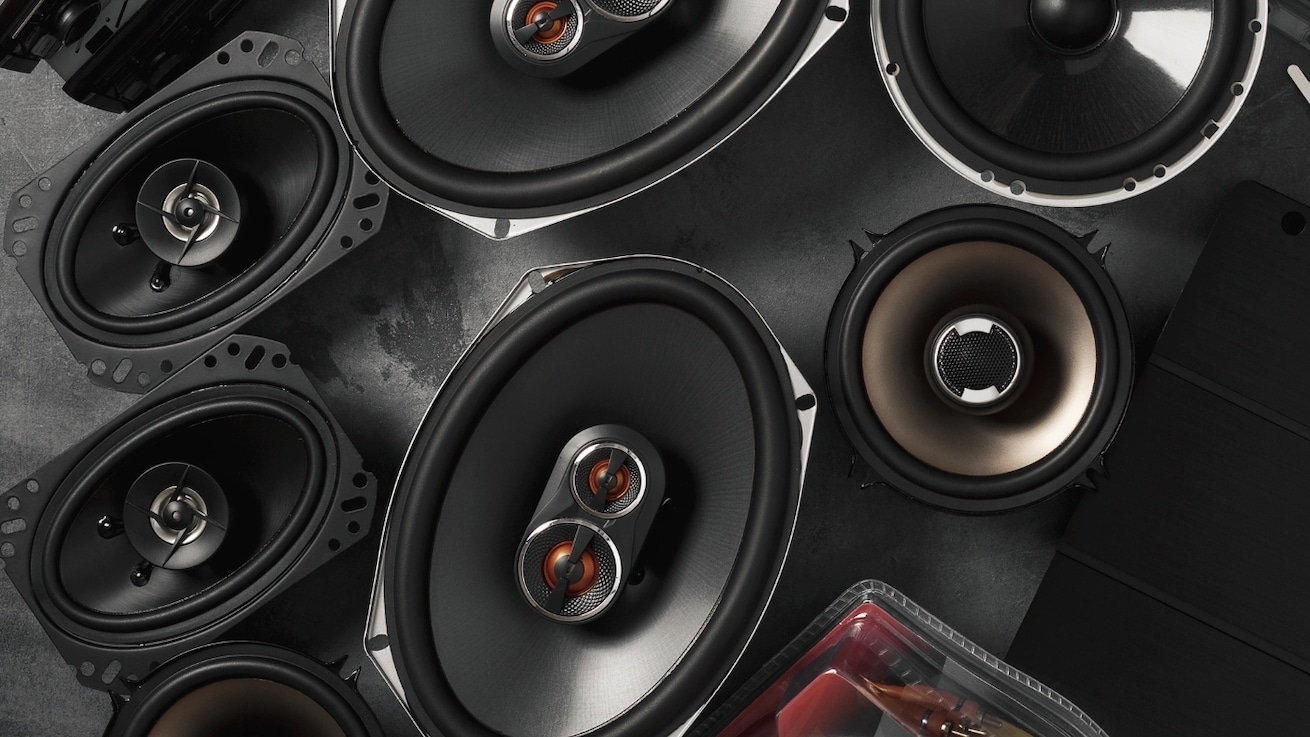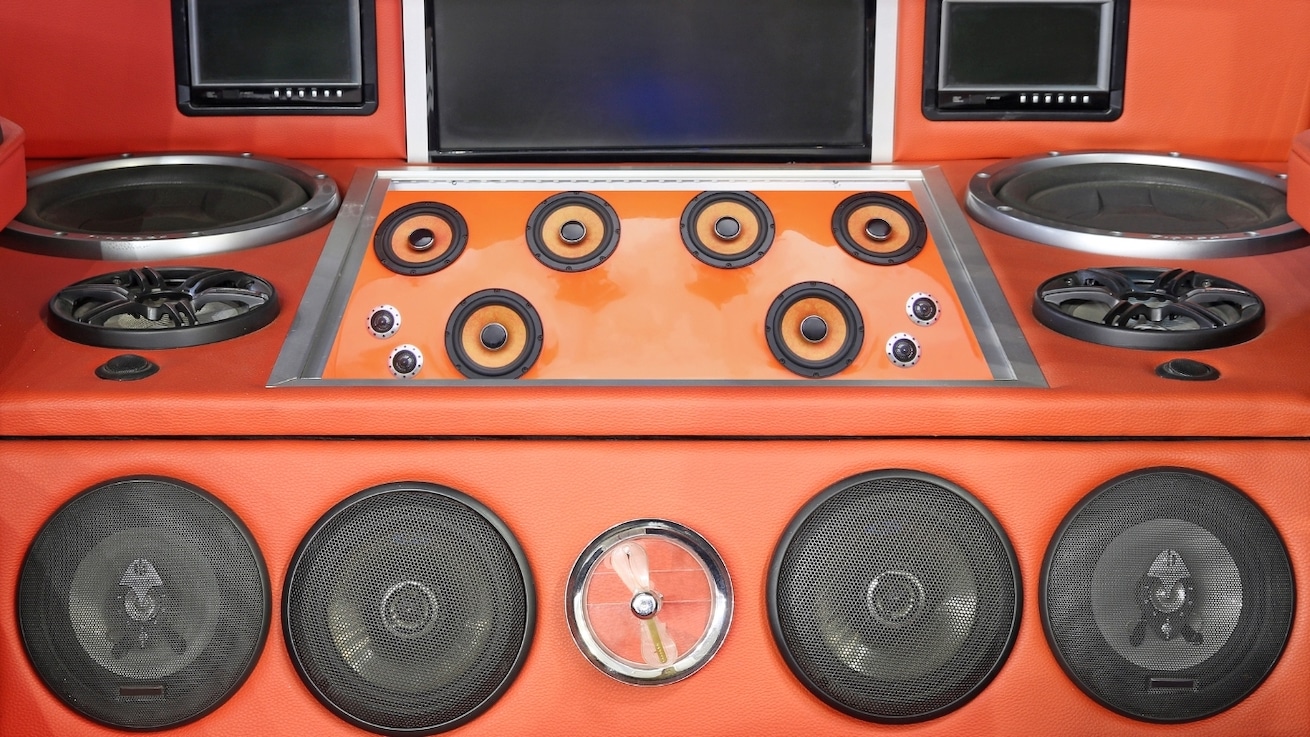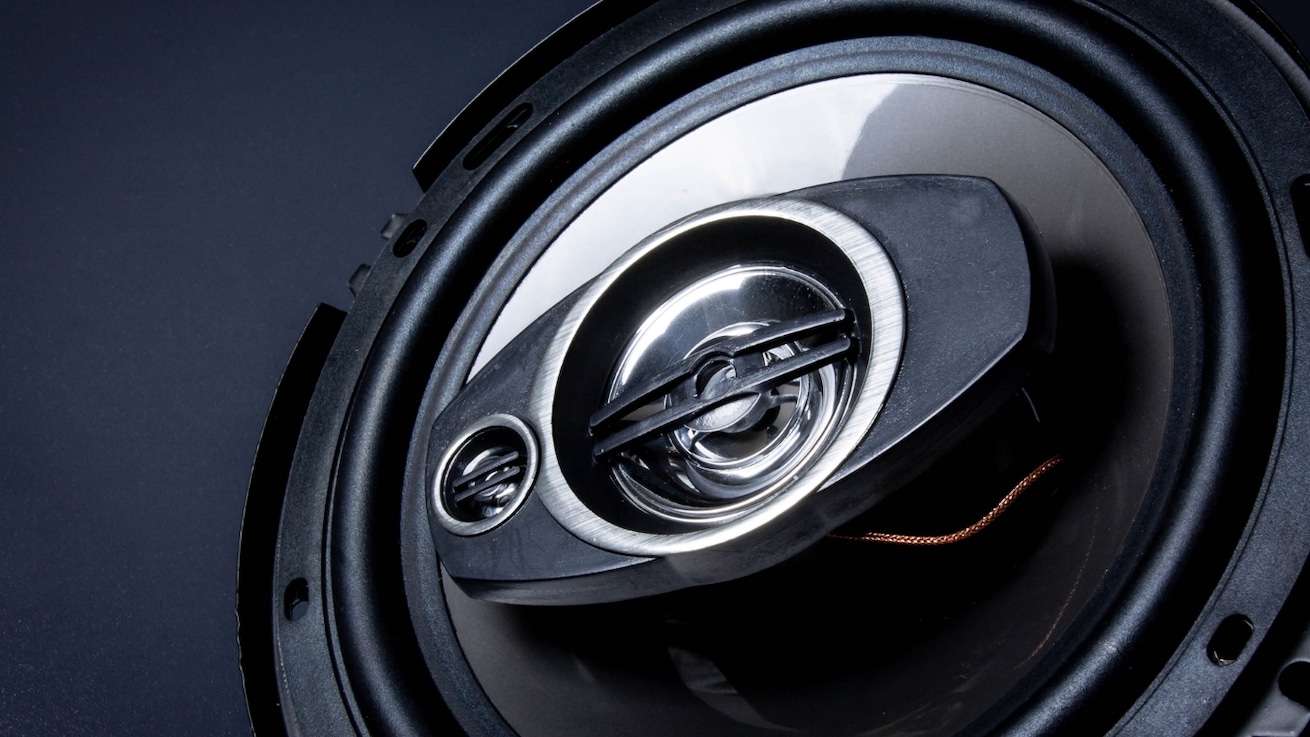Why Do My Speakers Buzz or Hum? 5 Ways to Fix Buzzing Noise
Why do my speakers buzz or hum? Typically, this annoying noise is caused by an electrical issue known as a ‘ground loop.’ It occurs when there are multiple paths between two ground points, creating a circuit that allows electrical current to flow and create an annoying buzz or hum.
The problem commonly starts with the cables connecting all your audio equipment, particularly if they’re running too closely to other electronic devices or power cables, which can disrupt the audio signal. Furthermore, poor shielding or a broken connection in the cable can also cause such issues.
So, how can you fix the buzzing sound? Check your audio cables for any visible signs of wear or damage. If they seem fine, try to rearrange them, making sure they’re not tangling with power adapters or other electronics. This simple act can sometimes miraculously eliminate the hum.
If the problem persists, it may be a ground loop issue. For such a case, you can invest in ground loop isolators, devices specifically designed to break the loop and eliminate ground hum. Another useful tip is to try a different wall socket for your audio system, ideally on another circuit, as the issue might be stemming from your electrical installation.
If all else fails, it may be time to consult with a professional audio technician. While this buzzing or humming noise can be annoying and disruptive, there are multiple ways to fix the issue. Don’t let the small buzz stand in the way of your enjoyment of clean and clear audio playback.
Understanding the Speaker Buzzing Sound

To fix buzzing sound issues, you gotta first get what’s causing the problem. It’s like understanding the villain in your story before you can beat ’em. One common cause is electromagnetic interference (EMI) from nearby electronic devices. This can be resolved by moving the audio system away from these devices or using shielding materials.
Another possible cause is a ground loop, which occurs when there are multiple paths for electrical current to flow. This can be fixed by using ground loop isolators or ensuring proper grounding of all audio equipment.
Audio Cable Buzzing Sounds
Damaged audio cables connecting to your head unit can also cause buzzing sounds. This can be due to frayed or loose connections or even a break in the cable itself. Alright, if you’re dealing with this problem, just grab some new cables and swap out the busted ones.
Make sure they’re tightly connected to your sound gear and main unit. If the problem persists, it may be necessary to consult a professional for further troubleshooting and repairs.
Electromagnetic Interference
Your audio device may reproduce an electrical interference that is produced in the radio frequency band called Radio Frequency Interference Radio frequency interference (RFI). The output audio may sound distorted because of this mechanically induced hum. Using shielded cables can help minimize the impact of RFI on your audio output.
AC Device Interference
Typically, the AC electrical signals are transported through wires that are insulated to prevent interference. However, if there is a problem with the insulation or if the wires are too close to other electrical devices, electrical interference can occur. When interference messes with your audio signal, it can really muck up the sound quality you’re getting.
To mitigate and eliminate AC line hum noises, it is important to keep audio cables away from AC power cables and other electronic devices that may emit electromagnetic signals. Additionally, using shielded cables can help minimize interference from external sources.
Audio Source That May Introduce Noises
Another possibility is that the digital audio input that is being used may introduce noise. This can happen if the audio source has a poor signal-to-noise ratio or if there are issues with the digital conversion process.
To address this, it may be helpful to use a higher-quality audio source or to check for any settings or adjustments that can improve the signal quality. Additionally, using a dedicated audio interface or sound card can also help reduce the noise introduced by the source of the audio.
Additionally, that pesky computer noise can really muck up your audio input, messing with the sound quality. The buzzing inside your laptop might be because of things like fans or sound cards messing with the electronics. The audio source can pick up the sound waves produced by these components.
Troubleshooting and 5 Easy Ways to Fix Buzzing Noise

Introducing a USB noise filter can help you eliminate any buzzing noise caused by a poor signal-to-noise ratio. This filter works by isolating the audio signal from any unwanted electrical interference, resulting in cleaner and clearer sound.
Checking Audio Cables
Any audio cable that is damaged may cause a buzzing noise. It is important to inspect all audio cables for any signs of wear and tear, such as frayed or exposed wires. If a damaged cable is found, replacing it with a new one can often resolve the hissing issue.
Ensuring that all cables are securely plugged in and properly connected can also help eliminate any potential sources of interference. Using a Bluetooth device that can transmit data wirelessly to your playback system can also help you remove ground hum issues. Those devices use RF carrier signals to transmit the electrical signal wirelessly.
Addressing Interference Issues
All of the AC power mains plugs in most audio systems should have the same ground potential. Some digital-to-analog converters can also produce noise if they are not properly shielded. To address this, make sure to use high-quality shielded cables and consider investing in a power conditioner or surge protector to filter out any electrical noise.
The audio cable’s shield is typically connected to the grounded chassis of both the computer and the amplifier, effectively closing a loop between outlets A and B.
Electrical Ground Loop Hum
A ground loop acts as an additional path for electrical current to flow, causing a hum or buzzing sound in audio systems. To address this issue, using a ground loop isolator can help break the loop and eliminate unwanted noise.
Additionally, rearranging the placement of playback systems and separating power cables from audio cables can also help reduce the chances of ground loop interference.
Avoiding Frequency Interference
Use a limited frequency response to avoid interference from other nearby devices. This can be achieved by using shielding materials or enclosures for sound equipment. Additionally, selecting the appropriate frequency band and channel for wireless devices can help minimize interference from other signals in the area.
Analog recordings produce their own noise due to the inherent limitations of the medium. This noise can be reduced by using high-quality analog equipment and ensuring proper grounding techniques are implemented.
Any old recording that used an analog tape would probably benefit from a professional remastering process to enhance the audio quality and reduce the noise. Additionally, regular maintenance and cleaning of analog tape machines can help preserve the integrity of the recordings and minimize any degradation over time.
Properly Grounding Your Audio System
Boosting the amplifier gain levels can help you determine if there are any grounding issues in your sound system. If you notice a significant increase in noise or hum when the gain levels are increased, it may indicate a grounding problem.
Properly grounding your system involves connecting all components to a common ground point, such as a dedicated ground rod or a metal water pipe. This helps eliminate unwanted noise and ensures optimal performance of your equipment.
Setting the gain stages correctly would drastically remove electrical noises. Listen, you’ve got to pay attention to the maker’s guidelines when adjusting your gear’s gain levels. You don’t want any mishaps messing up your equipment, right? It’s all about preventing damage while getting top performance.
Additionally, regularly checking and maintaining the grounding connections can help prevent any future grounding issues and ensure a consistent and clean audio signal.
How To Remove A Ground Loops In Audio Systems?

Ground loops in sound systems can cause a major annoyance by producing a persistent buzzing sound from the speakers, often referred to as a ground loop hum. To remove ground loops, one must first identify the source of the problem, often found in the audio signal wires.
These wires may need to be grounded properly or isolated to prevent the hum within the audible range. The buzzing sound may also arise from the connection between different components.
So, it’s pertinent to check these connections and ensure they are not creating a ground loop. An audio isolation transformer or a ground loop isolator can help to eradicate these issues and improve your audio experience.
You can purchase a HUM x ground isolator to remove any audible hum sounds. These particular devices can help you break any ground loop safely.
A transformer noise can be removed by utilizing a ground loop isolator, which will eliminate the unwanted noise caused by the ground loop. It is important to ensure that all audio equipment is properly grounded to prevent any potential issues with ground loops.
Can Damaged Equipment Be The Reason Why You Have Speakers Buzzing?
A faulty power amplifier can also be a potential cause of speakers buzzing. If the amplifier is not functioning properly, it can produce distorted or noisy signals that can result in buzzing sounds from the speakers. It is recommended to check and potentially replace any damaged audio system to troubleshoot and resolve the issue of speakers buzzing.
Test your power amplifier by trying different AC outlets before you install it to your audio system. Additionally, ensure that all cables and connections are secure and properly plugged in to eliminate any potential sources of interference that may be causing the buzzing sound.
What Is A Ferrite Noise Suppressor Sleeve?
Ferrite noise suppressor sleeves are designed to reduce radio frequency interference (RFI) in audio and video systems. They are typically made of a ferrite material that absorbs and dissipates unwanted noise signals, improving the overall quality of the audio or video signal.
These sleeves can be easily installed by wrapping them around cables or wires, effectively suppressing any buzzing or interference caused by external sources.
Other Reasons Why Your Speakers Producing a Humming Sound
The quality of the AC line voltage can also contribute to a humming sound in speakers. If the voltage is not stable or if there are fluctuations, it can result in unwanted noise being introduced into the audio signal. Additionally, faulty grounding or improper wiring can also cause humming sounds in speakers.
Getting an AC power regulator would help you remove any inherent noise, ensuring a stable and clean power supply to your speakers. Properly grounding your amp and checking for any loose or damaged wiring can also help eliminate humming sounds.
Conclusion
Try using uninterruptible power supplies to see if there are any noise changes when powering your speakers. If the humming persists, it may be necessary to consult a professional technician to diagnose and fix any underlying issues with your audio setup.
Utilizing a device with surge protection can greatly improve the safety and longevity of your equipment. Additionally, regularly cleaning and maintaining your speakers can prevent dust and debris from causing interference or damage.
Last Updated on: March 16, 2025

